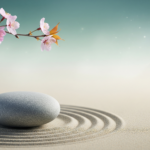Sarah, an emergency room nurse with eight years of experience, did not leave because she stopped caring. She left because the numbers no longer worked. Student loans outpaced her wages, overtime became mandatory without premium pay, and patient loads rose to unsafe levels. Eventually, the arithmetic of her life and work collapsed.
Sarah’s story is not unusual. Across the country, clinicians are leaving medicine in numbers that no longer feel like turnover; they feel like an exodus. Those who remain report rising burnout, moral injury, and despair. Medical school applications are falling even as the population ages. Headlines call it a workforce shortage. But to those inside, it feels like collapse.
Beyond “self-care”
When institutions respond by urging clinicians to “practice self-care,” it can sound hollow. Most physicians and nurses already know the language of resilience. They can recite the sleep-hygiene playbook and prescribe mindfulness apps to their patients. Knowledge is not the barrier; feasibility and the perceived impossibility of caring for themselves are the primary barriers.
Telling exhausted clinicians to try harder at wellness is like telling a drowning swimmer to “just move your arms.” It misplaces responsibility, framing burnout as a personal failure rather than a systemic condition.
A broader framework
Still, clinicians deserve access to the same health they champion for patients. Two well-established models help widen the lens: the Eight Dimensions of Wellness (physical, emotional, occupational, financial, social, intellectual, environmental, spiritual) and the Six Pillars of Lifestyle Medicine (nutrition, physical activity, stress management, restorative sleep, social connection, avoiding risky substances).
Clinicians know these frameworks. What is often missing is permission to practice them imperfectly, in fragments, and on their own terms.
- Physical wellness is not about gym memberships and elaborate meal prep. It might look like climbing stairs instead of waiting for the elevator, grabbing a protein-rich snack instead of running on caffeine, or using blackout curtains to salvage rest after a night shift.
- Emotional wellness does not require perfect composure. It means acknowledging secondary trauma, debriefing a difficult case with a colleague, or allowing yourself to feel grief without shame.
- Occupational wellness does not mean loving every chart or shift. It is about remembering the patient who thanked you, the diagnosis you caught, the family you comforted: small moments of meaning that buffer a hostile system.
- Social and spiritual wellness often show up in brief exchanges: a text from a friend who understands your schedule, a quiet ritual after a code, or a moment of awe in the middle of a long night.
None of these are solutions. They are survival strategies or lifelines clinicians can claim while pushing for the systemic change that true wellness requires.
The systemic fix
Individual strategies help, but they cannot substitute for reform. Real solutions mean:
- Expanding loan-forgiveness programs so debt does not dictate career choices.
- Ensuring Medicare physician payments rise with inflation; so clinicians are not absorbing a pay cut every year when they care for Medicare patients.
- Mandating safe staffing ratios to protect both patients and professionals.
- Reducing administrative burdens that steal clinical time and colonize evenings and weekends.
- Reforming licensing and credentialing so seeking mental health care is not a professional liability.
These are not perks. They are patient-safety measures. A system that burns out its workforce cannot deliver safe or equitable care.
Solidarity as survival
What clinicians need is not more advice, but more space and solidarity. That means sharing stories, supporting colleagues, joining professional organizations that advocate for reform, and voting for policies that strengthen the care infrastructure.
Your wellness is not selfish. It is the foundation for every patient you will serve tomorrow. Until we fix the equation, small acts of preservation are not indulgences; they are acts of resistance. And collective action is the only way to balance the math for good.
Pragya Thakur is a health and wellness coach.



















![Stopping medication requires as much skill as starting it [PODCAST]](https://kevinmd.com/wp-content/uploads/The-Podcast-by-KevinMD-WideScreen-3000-px-4-190x100.jpg)
![Weaponizing food allergies in entertainment endangers lives [PODCAST]](https://kevinmd.com/wp-content/uploads/The-Podcast-by-KevinMD-WideScreen-3000-px-3-190x100.jpg)


![AI censorship threatens the lifeline of caregiver support [PODCAST]](https://kevinmd.com/wp-content/uploads/Design-2-190x100.jpg)
